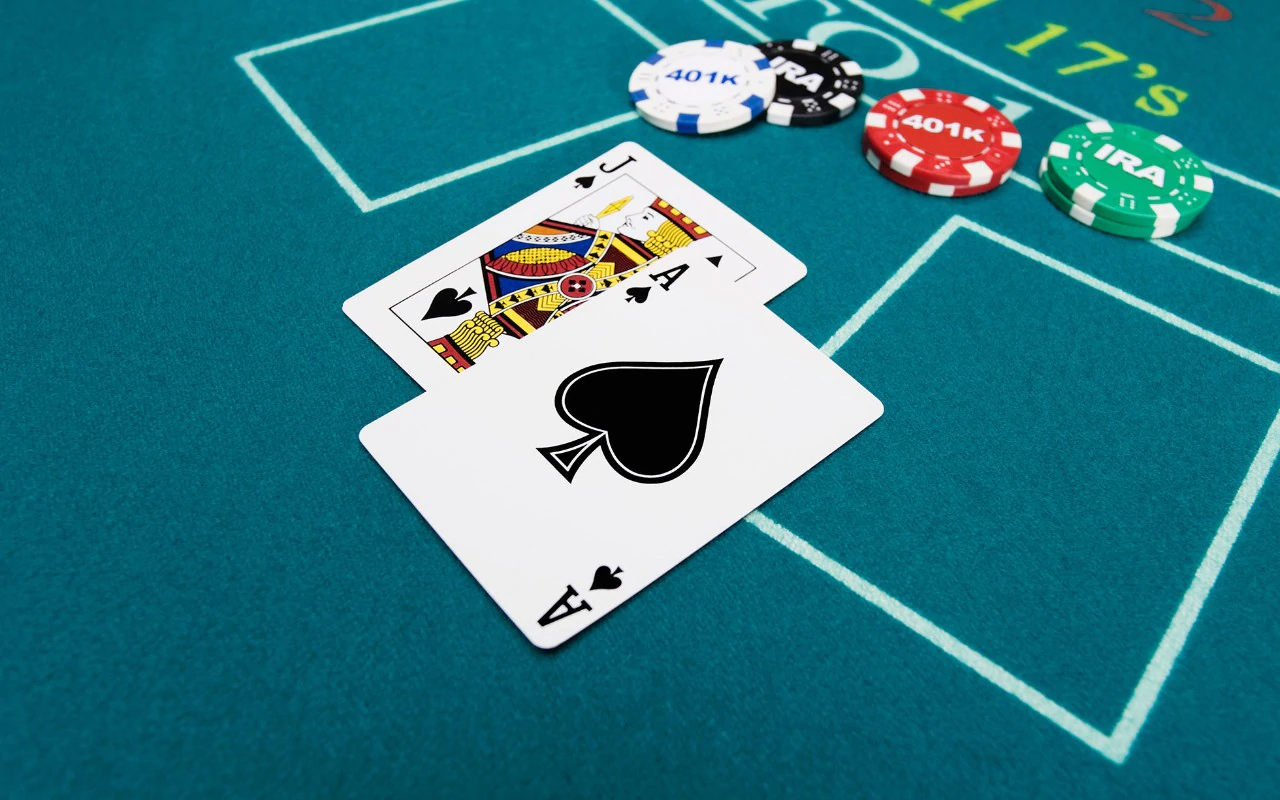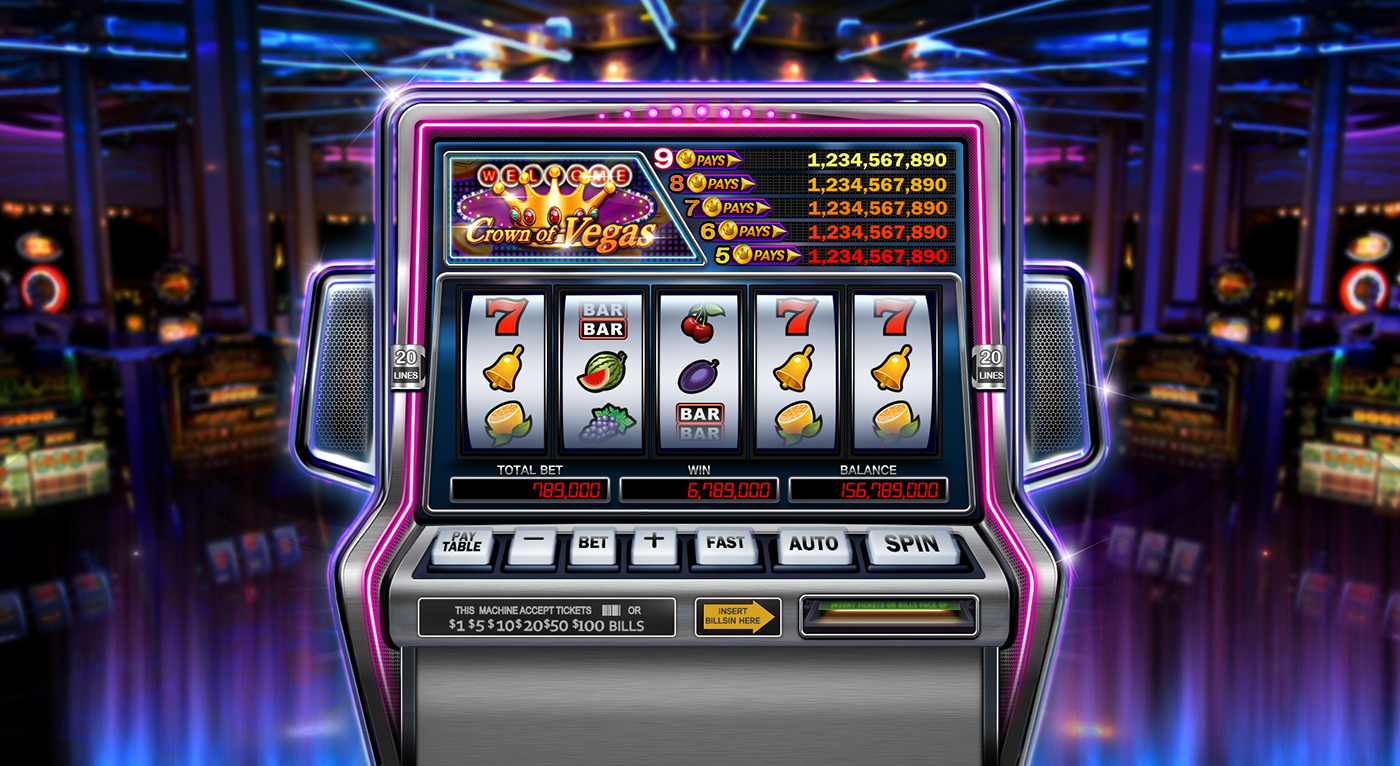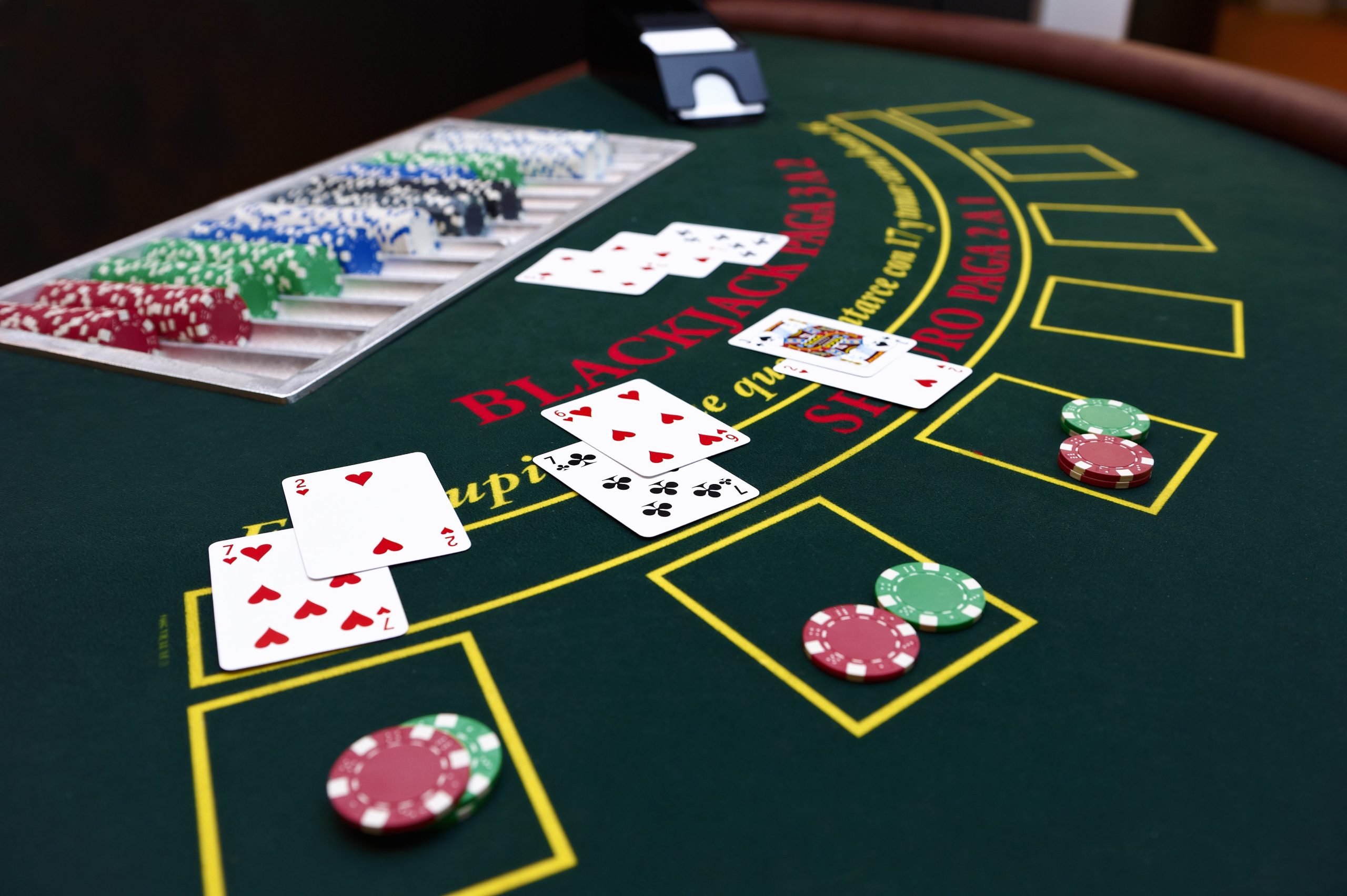Introduction
What Is House Edge In Blackjack: When playing casino games like blackjack, it is essential to understand the concept of the house edge. The house edge is a statistical measure that represents the advantage the casino holds over players in a particular game. In this article, we will explore what the house edge is in blackjack and its significance in determining the odds of winning. In blackjack, the house edge is the percentage of each wager that the casino expects to retain on average over an extended period of play.
The house edge in blackjack is relatively low compared to other casino games, making it a popular choice for players seeking better odds. The precise value of the house edge varies depending on the specific rules implemented in the game, such as the number of decks used, the dealer’s actions, and the payout for blackjack. Understanding the house edge is crucial for players as it directly impacts their long-term chances of winning.
By being aware of the house edge in blackjack, players can make informed decisions and employ strategies that aim to reduce the casino’s advantage. It allows them to approach the game with a realistic understanding of the odds, enhancing their overall gambling experience.

What does house edge mean in a casino?
The house edge is also known as the casino advantage. And it’s something that exists on every table game, lotto, or slot in a casino online or on land. House edge tells you: How much each game pays out on average over its lifespan. Which games offer players the best returns on their bets. In a casino, the house edge refers to the mathematical advantage that the casino has over players in any given game. It is a built-in percentage that ensures the casino will, on average, profit over time.
The concept of the house edge is based on the fact that the odds of winning in most casino games are slightly skewed in favour of the house. This advantage allows the casino to generate revenue and cover its operating costs. The house edge is determined by the rules and mechanics of each specific game. It is typically expressed as a percentage and represents the average amount that the casino expects to retain from each bet placed by players.
While the house edge ensures the casino’s profitability, it doesn’t mean that individual players cannot win or have short-term success. However, in the long run, the house edge ensures that the casino will have a statistical advantage over time.
How does a house edge work?
These advantages, known as the “house edge,” represent the average gross profit that the casino expects to make from each game. The longer you play, the greater the odds are that the result of your play will match up with the house edge—and that you will lose money.
The house edge is a concept commonly used in casino gambling that determines the statistical advantage the casino has over players in any given game. It represents the average percentage of each wager that the casino expects to keep as profit in the long run. The house edge is calculated based on the mathematical probability of winning or losing in a particular game. It is designed to ensure that, over time, the casino will make a profit, regardless of individual outcomes.
For example, in a game like roulette, the house edge is determined by the presence of the green “0” and “00” pockets on the wheel, which give the casino an advantage. In blackjack, the house edge is influenced by the rules of the game and the player’s decisions.
Understanding the house edge is essential for players because it helps them make informed decisions about which games to play. Generally, games with a lower house edge offer better odds for players, increasing their chances of winning in the long run.
What is the best house edge in blackjack?
Most casino games have a fixed house edge, ranging from as low as 1.36% to as high as 29%. The best you can find is blackjack (21) played optimally, wherein you can reduce the house edge to under 0.5%. The best house edge in blackjack is achieved when playing with optimal strategy and favourable game rules.
The specific rules implemented in a blackjack variant can significantly impact the house edge. Generally, the best house edge in blackjack is found in games that have player-friendly rules. One of the most favourable rule variations for players is when blackjack pays 3 to 2, rather than 6 to 5, as it reduces the house edge.
The exact house edge varies depending on the specific rules and the player’s strategy. When playing with perfect basic strategy, which involves making the statistically optimal decisions in each situation, the house edge can be as low as 0.5% or even lower in some cases.

How is house edge calculated in blackjack?
The house edge is half of one percent so if we take $100 million and multiply it by . 005 we get $500,000 which is how much the casino expects to make off of you in the long run if you continue to bet $100 a hand. So essentially each bet you make is worth about 50 cents to the casino.
The house edge in blackjack is calculated based on the specific rules and conditions of the game. It is derived from the mathematical probabilities of various outcomes.To calculate the house edge in blackjack, the following factors are taken into account:
- The specific rules of the game: This includes factors such as the number of decks used, whether the dealer stands or hits on a soft 17, the payout for blackjack (3 to 2 or 6 to 5), and the availability of surrender options.
- Player strategy: The house edge assumes that the player is using basic strategy, which is the mathematically optimal way to play each hand. Deviating from basic strategy can increase the house edge.
- Probabilities of winning or losing: The probabilities of various outcomes, such as getting a blackjack, busting, or achieving a certain hand total, are calculated based on the rules and the number of decks used.
By taking into account these factors, the house edge is determined as a percentage representing the average amount that the casino expects to retain from each bet over time.It’s important to note that the house edge is a long-term statistical expectation and does not guarantee specific results in individual playing sessions.
What are the house edge odds in blackjack?
In Blackjack, the house edge can be as low as . 5% – one of the lowest of all games at the casino, compared to 5.26% for Roulette. That results in a much more even playing field between players and the house for Blackjack. The house edge in blackjack can vary depending on several factors, including the specific rules of the game and the player’s strategy. There are some general guidelines regarding the house edge odds in blackjack.
It’s important to note that the house edge in blackjack can be further influenced by certain variations in the rules. For instance, if the game uses a different payout for blackjack, like 6 to 5 instead of 3 to 2, the house edge increases significantly. Similarly, rules such as allowing the dealer to hit on soft 17 or restricting the player’s ability to double down or split can also impact the house edge.
How is house edge calculated blackjack?
The house edge is half of one percent so if we take $100 million and multiply it by . 005 we get $500,000 which is how much the casino expects to make off of you in the long run if you continue to bet $100 a hand. So essentially each bet you make is worth about 50 cents to the casino.
1. Determine the probability of winning each possible hand combination based on the player’s strategy and the rules of the game. This requires taking into account the player’s starting hand, the dealer’s up card, and the available options like hitting, standing, doubling down, and splitting.
2. Assign the corresponding payouts for each possible outcome. This includes payouts for a standard win, a blackjack (an Ace plus a 10-value card), a push (tie), and a loss.
3. Multiply the probability of each outcome by its corresponding payout.
4. Sum up the results from step 3 to calculate the overall expected return for the game.
5. Subtract the expected return from 1 (or multiply by 100) to obtain the house edge percentage.
It’s important to note that calculating the exact house edge in blackjack can be complex due to the many possible hand combinations and variations in rules. Using computer simulations and mathematical models, experts have derived accurate estimates for different rule sets to provide players with a general idea of the house edge they can expect in various blackjack games.

What is the lowest blackjack house edge?
It may come as no surprise that Blackjack is the game with the lowest house advantage. This game is pretty easy to learn and there are several different strategies in Blackjack which could increase your chances of winning even more. The lowest blackjack house edge can be achieved by playing with optimal strategy and favorable rules. While the specific house edge can vary depending on the rules and variations of the game, there are certain conditions that can minimize the house edge.
In a standard blackjack game with favorable rules, such as the dealer standing on all 17s, blackjack paying 3 to 2, the ability to double down on any two cards, and the ability to resplit pairs, the house edge can be as low as 0.5% to 1%. These rules are commonly found in many casinos and are considered player-friendly. Some casinos offer variations that can further decrease the house edge. For example, a blackjack game that allows surrender, where players can forfeit half their bet instead of playing a hand they believe is likely to lose, can reduce the house edge even more.
What is the house edge in blackjack?
The house edge in blackjack refers to the statistical advantage that the casino holds over players in the game. It represents the percentage of each wager that the casino expects to retain as profit in the long run. In a standard blackjack game with typical rules, the house edge is generally around 0.5% to 1%. This means that, on average, for every $100 wagered by players, the casino can expect to keep $0.50 to $1 as profit.
The house edge is determined by several factors, including the specific rules of the game and the player’s strategy. Variations in rules such as the payout for blackjack, the dealer’s actions on certain card totals, and the availability of options like doubling down and splitting can all impact the house edge.
How is the house edge calculated in blackjack?
The house edge in blackjack is calculated by considering the probabilities of different outcomes and their corresponding payouts. The calculation involves analysing the rules of the game and the player’s strategy. To calculate the house edge in blackjack, the following steps are typically taken:
1. Determine the probability of winning, losing, or pushing (tie) for each possible hand combination based on the rules of the game. This involves considering the player’s initial hand, the dealer’s up card, and the available options like hitting, standing, doubling down, and splitting.
2. Assign the payouts for each possible outcome. This includes payouts for a standard win, a blackjack (an Ace plus a 10-value card), a push, and a loss.
3. Multiply the probability of each outcome by its corresponding payout.
4. Sum up the results from step 3 to calculate the overall expected return for the game.
5. Subtract the expected return from 1 (or multiply by 100) to obtain the house edge percentage.
What factors affect the house edge in blackjack?
Several factors can significantly impact the house edge in blackjack. Understanding these factors is crucial for players to make informed decisions and choose games with more favourable odds. Here are some key factors that can influence the house edge:
- Rules: Different variations of blackjack have varying rules, such as whether the dealer hits or stands on soft 17, the payout for blackjack (3:2 or 6:5), the ability to double down on any two cards or only certain totals, and the option to surrender. Favourable rules for players, such as the dealer standing on all 17s or the ability to resplit pairs, can lower the house edge.
- Number of Decks: The number of decks used in the game affects the house edge. Generally, the fewer the decks, the lower the house edge. Single-deck blackjack typically has a lower house edge compared to games with multiple decks.
- Strategy: The player’s strategy and decision-making play a crucial role. Using optimal strategy based on mathematical calculations can minimise the house edge and improve the player’s odds of winning.
- Skill Level: A player’s skill level and knowledge of the game can impact the house edge. Skilled players who understand basic strategy and employ advanced techniques, such as card counting, can reduce the house edge further.
By considering these factors, players can choose blackjack games with more favourable conditions, lower the house edge, and increase their chances of winning in the long run.

Conclusion
The house edge in blackjack represents the statistical advantage held by the casino over players in the game. It is a crucial concept for understanding the odds and profitability of playing blackjack. The house edge is calculated based on factors such as the rules of the game, the number of decks used, player strategy, and skill level.
By knowing the house edge, players can make informed decisions and choose games that offer better odds of winning. Favourable rules, such as the dealer standing on all 17s or the ability to resplit pairs, can lower the house edge and increase the player’s chances of success. Employing optimal strategy and having a good understanding of the game’s rules and variations can further reduce the house edge.
It’s important to note that the house edge does not guarantee individual outcomes. Short-term results can vary widely, but over a large number of hands, the house edge determines the casino’s profitability. By playing strategically and selecting games with lower house edges, players can enhance their chances of winning and enjoy a more favourable gambling experience.










